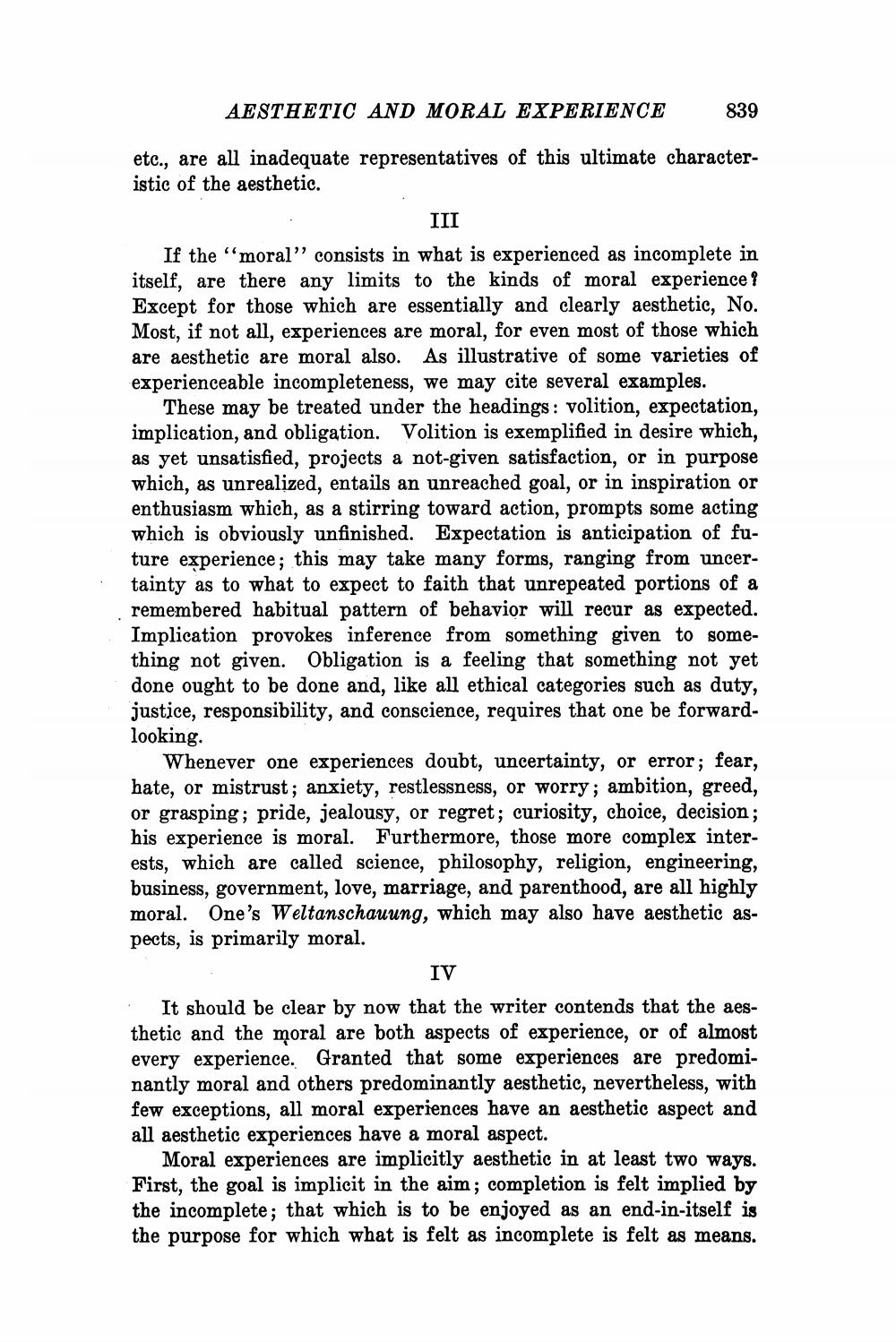Book Title: Three Essays On Aesthetics Author(s): Archie J Bahm Publisher: Archie J Bahm View full book textPage 3
________________ AESTHETIC AND MORAL EXPERIENCE 839 etc., are all inadequate representatives of this ultimate characteristic of the aesthetic. III If the "moral" consists in what is experienced as incomplete in itself, are there any limits to the kinds of moral experience ? Except for those which are essentially and clearly aesthetic, No. Most, if not all, experiences are moral, for even most of those which are aesthetic are moral also. As illustrative of some varieties of experienceable incompleteness, we may cite several examples. These may be treated under the headings: volition, expectation, implication, and obligation. Volition is exemplified in desire which, as yet unsatisfied, projects a not-given satisfaction, or in purpose which, as unrealized, entails an unreached goal, or in inspiration or enthusiasm which, as a stirring toward action, prompts some acting which is obviously unfinished. Expectation is anticipation of future experience; this may take many forms, ranging from uncertainty as to what to expect to faith that unrepeated portions of a remembered habitual pattern of behavior will recur as expected. Implication provokes inference from something given to something not given. Obligation is a feeling that something not yet done ought to be done and, like all ethical categories such as duty, justice, responsibility, and conscience, requires that one be forwardlooking. Whenever one experiences doubt, uncertainty, or error; fear, hate, or mistrust; anxiety, restlessness, or worry; ambition, greed, or grasping; pride, jealousy, or regret; curiosity, choice, decision; his experience is moral. Furthermore, those more complex interests, which are called science, philosophy, religion, engineering, business, government, love, marriage, and parenthood, are all highly moral. One's Weltanschauung, which may also have aesthetic aspects, is primarily moral. IV It should be clear by now that the writer contends that the aesthetic and the moral are both aspects of experience, or of almost every experience. Granted that some experiences are predominantly moral and others predominantly aesthetic, nevertheless, with few exceptions, all moral experiences have an aesthetic aspect and all aesthetic experiences have a moral aspect. Moral experiences are implicitly aesthetic in at least two ways. First, the goal is implicit in the aim; completion is felt implied by the incomplete; that which is to be enjoyed as an end-in-itself is the purpose for which what is felt as incomplete is felt as means.Page Navigation
1 2 3 4 5 6 7 8 9 10 11 12 13 14 15 16 17 18 19 20 21 22 23 24 25 26 27 28 29 30 31 32
